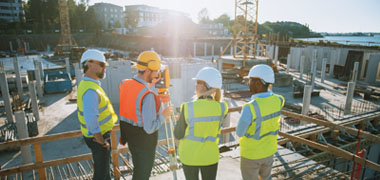
AI Occupational Exposure score unavailable For more insight, research the specific tasks and skills required for the role.
Explore all careersBuilding Surveyors ensure structures meet safety and code standards, assess plans, inspect buildings, and provide improvement recommendations.
Get qualified to work as a Building Surveyor with a course recognised across Australia. Speak to a training provider to learn more.
In Australia, a full time Building Surveyor generally earns $1,400 per week ($72,800 annual salary) before tax. This is a median figure for full-time employees and should be considered a guide only. As you gain more experience you can expect a potentially higher salary than people who are new to the industry.
 Courses.com.au Team
Courses.com.au Team
There are currently 8,500 people working as a Surveyor in Australia. This number has stayed stable over the last five years. Building Surveyors work in all areas of Australia, particularly where new development is common.
Source: Australian Government Labour Market Insights
 Courses.com.au Team
Courses.com.au Team
If you’re thinking about a career as a Building Surveyor you could start by enrolling in a Certificate IV in Surveying. This will allow you to work as a support technician or a surveyor’s assistant and you may choose to further your study to suit your career plans. This is a 12 month course and will address aspects of surveying work such as report writing and surveying equipment.
 Courses.com.au Team
Courses.com.au Team



A Building Surveyor looks at building structures to make sure they meet regulations and building codes. You’ll make sure they are safe and might check other considerations such as energy efficiency, functionality or accessibility. Building Surveyors assess plans for future buildings and provide feedback to designers and engineers. You might also inspect buildings that are already constructed and present your findings and recommendations for improvement.
Building Surveyors will usually work on a number of projects at once so you’ll need to be organised. You’ll be liaising with other industry professionals such as architects, local councils and builders so you’ll need to be a good communicator. Building Surveyors need keen observational skills and an eye for detail. You’ll have to be capable of writing detailed reports and performing a range of administrative tasks.